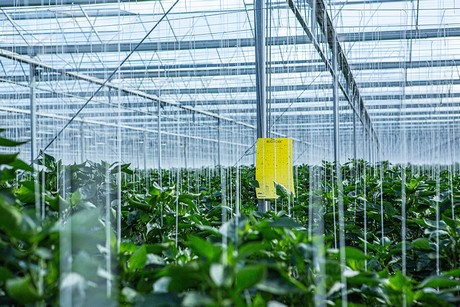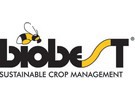For protected vegetable growers, crop change over is an important time. Growers that make a good start will reap the benefits throughout the entire season. Sam Gui, IPM and Pollination Specialist at Biobest, outlines the measures he recommends.
Consultation with plant breeder
First and foremost, it is best to consult with the plant breeder, says Sam. “Every grower wants to receive pest free, healthy plants. If possible, it is a good idea to visit the breeder and check for pests and diseases. If the breeder has used chemical crop protection products, then the grower needs this information. Due to certain residues, there may be a waiting period before beneficial insects can be safely introduced.”

Sticky traps and pheromone disruption
It is also important to employ sticky traps from the start. Yellow traps in tomato crops to monitor for whitefly and blue traps for the early detection of thrips in sweet peppers.
“We recommend that growers with crops damaged last season by Tuta absoluta, the tomato moth, to introduce Isonet® T. Containing a high dose of female pheromone, it confuses the male moths and interrupts mating.”
Strict hygiene
Thirdly, Sam advises adhering to strict hygiene measures right from the start. “It is essential to keep out all viruses. Ideally turn down all visitors from entering the crop, or only allow them when absolutely necessary. And then, apply strict measures such as disinfectant, overalls, shoe covers, gloves and hair nets.”
Planting schedule
Finally, Sam says that when crops are about to be replaced, it is a good time to evaluate the previous season with your Biobest advisor. “Based on that evaluation, we can come up with a provisional planting schedule. Of course, it may ultimately be adjusted, depending on the disease pressure.”
 Biobest Belgium NV
Biobest Belgium NV